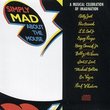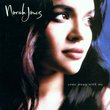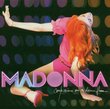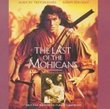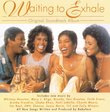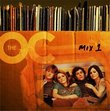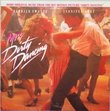| All Artists: Giacomo Puccini, Victor De Sabata, Maria Callas, Giuseppe di Stefano, Tito Gobbi, Orchestra e coro del Teatro alla Scala Title: Puccini: Tosca (complete opera) with Maria Callas, Giuseppe di Stefano, Tito Gobbi, Victor de Sabata, Chorus & Orchestra of La Scala, Milan Members Wishing: 0 Total Copies: 0 Label: EMI Classics Release Date: 8/19/1997 Genre: Classical Styles: Opera & Classical Vocal, Historical Periods, Modern, 20th, & 21st Century Number of Discs: 2 SwapaCD Credits: 2 UPC: 724355630421 |
Search - Giacomo Puccini, Victor De Sabata, Maria Callas :: Puccini: Tosca (complete opera) with Maria Callas, Giuseppe di Stefano, Tito Gobbi, Victor de Sabata, Chorus & Orchestra of La Scala, Milan
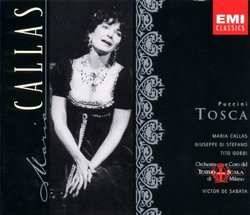 | Giacomo Puccini, Victor De Sabata, Maria Callas Puccini: Tosca (complete opera) with Maria Callas, Giuseppe di Stefano, Tito Gobbi, Victor de Sabata, Chorus & Orchestra of La Scala, Milan Genre: Classical
Little can be added to what's been written about this landmark recording, except that Walter Legge's 1953 mono production yields nothing to modern Tosca recordings for vivacity and theatrical impact--especially Maria Calla... more » |
Larger Image |
CD DetailsSynopsis
Amazon.com essential recording Little can be added to what's been written about this landmark recording, except that Walter Legge's 1953 mono production yields nothing to modern Tosca recordings for vivacity and theatrical impact--especially Maria Callas's. The miraculous Victor de Sabata conjures up a vibrant, inspiring orchestral canvas that enables Callas and her stellar cohorts to work their magic. Tito Gobbi and Callas spur each other on to heights in which the characters take over from the singers in the listener's mind. Giuseppe Di Stefano is on his best behavior, and in fresher voice than on his fine Leontyne Price-Herbert von Karajan remake. On this set, EMI includes texts, translations, and notes that discuss this recording in the context of Callas's mercurial career. --Jed Distler Similar CDsSimilarly Requested CDs
|
CD ReviewsProof That Opera Is Powerful Drama- Spectacular! Bill Ratner | Los Angeles, CA USA | 12/27/2003 (5 out of 5 stars) "Maria Callas was a legend in her time (roughly the World War II and 50's era) and she raised the bar for dramatic sopranos who would come in her aftermath, She was living proof that an opera singer is also a dramatist. Callas was a dedicated actress as much as she was an opera singer. She studied her roles so religiously that she became her characters. Thus, those who saw her perform when she was alive were treated with high art and drama. Now, thanks to the digital technology available to us, we can hear live performances on recording of Callas' finest moments - her Norma, her Lucia, her La Gioconda, her La Vestale, her Medea and in this cas, her Tosca. Puccini's Tosca, based on a play by the Frenchman Victor Sardou, is a story full of raw emotion and fiery drama. Floria Tosca is an aristocratic and good-hearted woman who loves the artist Mario. It is post-Napoleon Rome, and political instability befouls the air. The villainous Scarpia, jealous of Mario and wanting Tosca for himself, arranges the execution of Mario on false charges of revolt. Tosca leaps from a high building to her death. Maria Callas ' voice is heavy, dark and full of thunder. This kind of largeness is necessary for the role of Tosca, who is characterized as a strong woman, despite her tragic finale. Tito Gobbi sings a truly evil Scarpia, lusty, scheming and devilish. His baritone was very commanding in his day. Singing the heroic Mario is Di Stefano, who was paired with Callas quite often. His tenor voice is terrific, lyric and powerful and full of drama. In my opinion, Placido Domingo's Mario is just as good and perhaps even a clone of Stefano's. This recording is a good buy. Enough with the Renata Tebaldi versus Maria Callas feud. There may have been no rivalry at all. The fact they were both powerful-voiced, dramatic divas, yet distinct in their portrayals serves only as a matter of taste. If you are a loyal follower of Callas, then do not belittle a Tebaldi fan. Likewise if you are a Tebaldi fan, don't spew venom against Callas. It's only a feud between their fans, not the singers. In fact, Tebaldi and Callas got along great. The same is said of Joan Sutherland and Beverly Sills. There is no point in rivalry. I have heard both the Callas and Tebaldi Tosca and I like both of them." THE voice of Tosca Koli Mitra | New York, NY USA | 02/19/2000 (5 out of 5 stars) "The oddest thing I've read was one of these reviewers calling Callas' voice "common". Her voice is unique in the history of recorded opera. How many people can sing everything from Wagner to Bizet to Donizetti? and do so in a memorable way? You may or may not like it, but COMMON it is not. Callas was an incredibly versatile singer who may have been second to others in some things (such as Sutherland in the Bel Canto style work), but Tosca was MEANT for Maria. The darkish voice, the passion, the moments of elegance, the personal interpretation of Tosca WILL move you, even if you do think her tone is "ugly" --which I can't imagine ANYONE thinking. Keep in mind that this is Puccini. It's about drama, it's about life's rawness and poignancy. It's not JUST about the instrument. It's also about the skill, artistic commitment, and imagination of the instrumentalist. Maria Callas has all of this more than most singers.The UCLA kid's critique was incomprehensible to me. I'm only a few years older than her and, yes, I adore Cecilia Bartoli (not spelled with 'y') but I and many of my YOUNGER friends think she's dead wrong about Maria Callas. You can't compare apples and oranges. Callas was a coloratura, Bartoli is a Mezzo. A couple of years ago, Bartoli wouldn't even sing Carmen because she's growing her voice. Callas did Liebestod and the Lakme Bell Song in the same set! In her debut! Also, I think reviewers should try to tell us WHY they found something aesthetically unsatisfying. This "my generation" stuff if utter silliness whose logical extension would mean there is no reason to appreciate anything old --Puccini himself, for instance!" Absolute perfection ruth | Germany | 01/31/2004 (5 out of 5 stars) "I can't understand why some people call Callas' voice ugly.In 1953 it was a beautiful,warm instrument.
Just listen how wonderful Callas sings in the love-duets with Di Stefano.That's vocal beauty combined with great passion.Callas always sounds beautiful when it makes dramatic sense.In the scenes with Tito Gobbis' daemonical Scarpia the sound of Callas' voice changes.How can anyone sing about feelings like hate,fear and desperation with a beautiful voice?I think no other soprano is so convincing in the second act as Callas is.She portrays her feelings against Scarpia (t'odio daemonio!-I hate you devil!,assassino!-murderer!) with real hate in the voice.Another advantage of Callas'Tosca is,that she always tries to avoid laughable realistical effects like crying,screaming,sobbing which ruin the recordings of many verismo -singers.Only in Vissi d'arte you can hear a small sob that is really heartbreaking. In my opinion this recording is the best Tosca.When it was made Maria Callas,Giuseppe di Stefano and Tito Gobbi were all in their vocal prime.Di stefano was such a passionate Mario and Tito Gobbi will always be the most convincing Scapia of all times. The orchestra and the chorus of the Scala are perfect,Victor de Sabata is an intelligent conductor,you can feel how much he loved this opera. Another great recording is von Karajan's Tosca with Leontyne Price." |

 Track Listings (10) - Disc #1
Track Listings (10) - Disc #1

